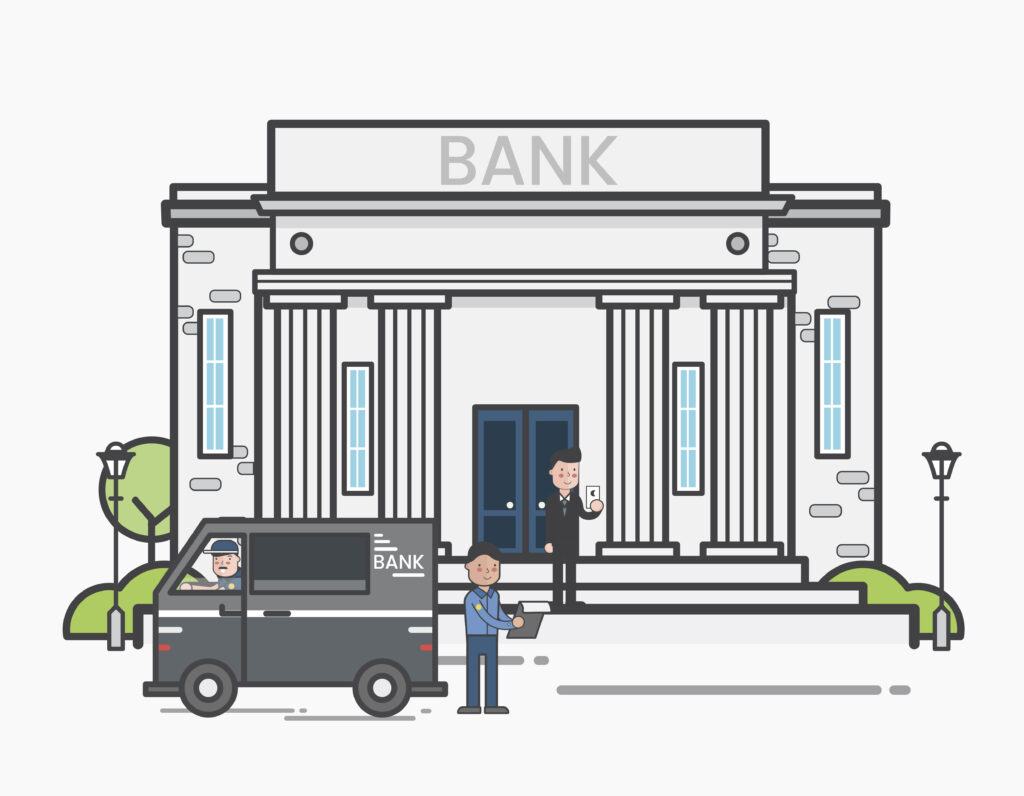
The Nigerian banking sector has stood as the backbone of Africa’s largest economy, with remarkable resilience amid macroeconomic challenges. The banking industry in Nigeria has undergone significant evolution from the consolidation era of 2004-2005 to today’s sophisticated, digital-first institutions, which serve over 100 million bank accounts.
The current CBN recapitalization exercise, running from April 1, 2024, to March 31, 2026, requires banks to dramatically increase their capital base, with the industry needing approximately N4.7 trillion to meet new benchmarks. This initiative aims to create stronger, more resilient institutions that can support Nigeria’s ambitious economic growth targets.
We’re witnessing a fundamental shift in banking business models, with institutions investing heavily in artificial intelligence, blockchain technology, and advanced analytics to enhance customer experience and operational efficiency. This technological evolution positions Nigeria’s banks among the most innovative on the African continent.
Top 10 Banks Defining Nigeria’s Financial Landscape
Here, we reveal the banking powerhouses that are not just surviving Nigeria’s economic complexities but thriving and leading the transformation toward a $1 trillion economy.
1. Access Bank Plc – Africa’s Retail Banking Leader
Access Bank has emerged as a close contender with $1.9 billion of Tier 1 capital and more than double the profit of FBN Holdings, establishing itself as one of Africa’s largest retail banks by customer base. They have operations spanning multiple African countries, which has positioned them as a truly continental financial powerhouse.
Their digital innovation leadership shines through robust mobile banking platforms, internet banking solutions, and the extensive Access Closa agency banking network that significantly enhances financial inclusion. Access Bank’s focus on sustainable banking and comprehensive SME support demonstrates their commitment to Nigeria’s economic development.
2. Zenith Bank Plc – Nigeria’s Profitability Champion
Zenith Bank consistently ranks among Nigeria’s most profitable banks, known for exceptional corporate governance, robust balance sheets, and outstanding financial performance.They have a full spectrum of corporate and retail banking products. A superior customer service, and strategic technology investments that deliver day to day banking solutions.
3. United Bank for Africa (UBA) Plc – Continental Banking Pioneer
UBA Plc operates as a leading pan-African financial services group with presence in 20 African countries plus the UK, USA, France, and UAE. Their extensive network provides unique advantages for cross-border banking, remittances, and continental commerce, making them the preferred choice for businesses with African ambitions.
We’re impressed by their digital banking innovations, particularly Leo, their AI-powered chatbot that serves customers across multiple languages and platforms. Their comprehensive mobile banking app caters to diverse customer needs across different geographies and regulatory environments.
4. First Bank of Nigeria Limited
First Bank of Nigeria has over 130 years of banking history, representing Nigeria’s oldest and most established financial institution. First Bank of Nigeria followed leading banks with tier 1 capital amounting to around $2.22 billion U.S. dollars, demonstrating their continued financial strength and market position.
Their extensive branch network and FirstMonie agency banking points reach deep into rural areas, significantly contributing to financial inclusion.
5. Guaranty Trust Holding Company (GTCO) Plc
GTCO, formerly GTBank, is widely acclaimed for pioneering digital banking excellence in Nigeria. In July 2024, Guaranty Trust Holding Company (GTCO) was raising 400 billion naira ($253 million) with a market capitalization of 1.35 trillion naira ($825 million), demonstrating strong investor confidence in their strategic direction.
They are highly efficient with their mobile banking apps and online platforms set industry standards for user experience. GTCO’s expansion beyond traditional banking into payment services, asset management, and pension funds reflects their ecosystem approach to comprehensive financial solutions.
6. Ecobank Nigeria Plc
Ecobank Nigeria a leading pan-African banking group with presence in 35 African countries. This expansive network enables unique cross-border banking solutions that facilitate continental trade and investment flows.
They are recognized for their digital platform strength, including mobile app and Omni Lite business banking, providing efficient services. Their extensive African footprint makes them the optimal choice for businesses and individuals engaged in regional commerce and cross-border banking.
7. Fidelity Bank Plc – MSME Development Champion
Fidelity Bank has positioned itself as a dynamic, customer-centric institution with particular focus on supporting Micro, Small, and Medium-sized Enterprises (MSMEs). They have a strong retail banking operation that helps to ensure a growing customer base and enhanced services across multiple touchpoints. Fidelity Bank’s MSME focus directly supports Nigeria’s economic diversification and job creation objectives.
8. Stanbic IBTC Bank Plc
Stanbic IBTC Bank leverages its affiliation with Standard Bank Group, Africa’s largest bank by assets, bringing international best practices and deep financial expertise to Nigeria. They excel in corporate and investment banking, wealth management, and pension fund administration.
They have sophisticated financial solutions for large corporations, institutional clients, and high-net-worth individuals, alongside their expanding retail banking presence. Their international connections and expertise make them ideal for complex financial transactions and strategic advisory services.
9. First City Monument Bank (FCMB)
FCMB operates as a diversified financial services group committed to driving financial inclusion and sustainable development. Their comprehensive banking products span personal, business, and corporate banking, with particular emphasis on reaching underserved communities.
We admire their extensive agency banking network, targeted initiatives for women in business, and innovative digital solutions designed to expand financial access. FCMB’s commitment to financial inclusion aligns with Nigeria’s broader development objectives and social impact goals.
10. Union Bank of Nigeria Plc
Union Bank represents one of Nigeria’s oldest and most historically significant financial institutions, with over a century of banking heritage. Having undergone significant transformation in recent years, they’ve modernized operations and digital offerings while maintaining their extensive branch network and trusted brand.
We recognize their focus on delivering simplified, efficient banking services to retail, commercial, and corporate clients. Their blend of rich heritage with contemporary banking solutions creates unique value propositions for customers seeking both tradition and innovation.
Recapitalization Impact on Banking Sector Dynamics
The CBN’s March 2024 mandate requiring all licensed banks to raise minimum paid-up capital to N500 billion for international licenses and N200 billion for national licenses represents the most significant regulatory transformation since the 2004-2005 consolidation exercise.
This recapitalization drive will fundamentally reshape Nigeria’s banking landscape, potentially leading to strategic mergers, acquisitions, and partnerships as institutions seek to meet new capital requirements. We anticipate stronger, more resilient banks emerging from this process, better equipped to support Nigeria’s economic growth ambitions.
The 24-month implementation timeline creates urgency for banks to explore various capital-raising options, including rights issues, public offerings, private placements, and strategic investments. This period will likely witness increased foreign investment interest and potential new entrants seeking to participate in Nigeria’s banking sector growth.
Banks that successfully navigate this recapitalization will gain competitive advantages through enhanced lending capacity, improved risk absorption capabilities, and stronger balance sheets that can support larger transactions and more sophisticated financial products.
Strategic Marketing and Customer Engagement Opportunities
As Nigeria’s banking sector becomes increasingly competitive, effective brand communication and customer engagement become crucial differentiators. Leading banks are recognizing the importance of strategic digital marketing to maintain market position and deepen customer relationships.
Modern banking customers expect seamless omnichannel experiences that span traditional branches, mobile applications, social media platforms, and digital marketing touchpoints. Banks that excel in digital storytelling, customer education, and community building create stronger brand loyalty and market penetration.
We observe that banks leveraging sophisticated digital marketing platforms can more effectively articulate their unique value propositions, promote digital banking solutions, and engage diverse customer segments across various channels. This strategic approach to marketing becomes particularly important during periods of regulatory change and market transformation.
When these banks partner with comprehensive digital marketing solutions like Socialander, they can enhance their online visibility, create compelling content strategies, and build authentic customer communities. Partnerships like these can enable banks to navigate the complex digital landscape while giving full attention to the financial services they provide.
Conclusion: Pillars of Nigeria’s Financial Future
These banking leaders are actively shaping Nigeria’s financial future through technology investments, expanded agent networks, and financial solutions that addresses customer demands. Their financial resilience, combined with strategic digital focus and sustained commitment to financial inclusion, ensures they remain foundational to Nigeria’s ambitious development goals and the drive toward a $1 trillion economy.
Looking ahead, as competitive intensity increases and digital expectations rise, strategic marketing and customer engagement become paramount for maintaining market leadership and building lasting customer relationships in Nigeria’s rapidly evolving financial landscape.





